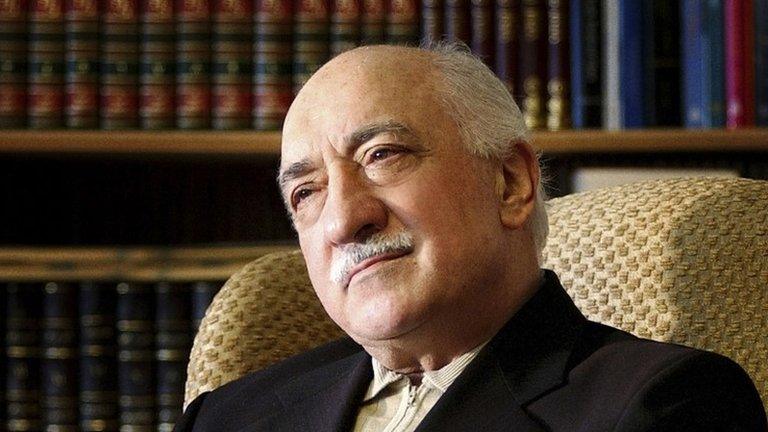Turkey media arrests: Mogherini leads EU criticism
- Published
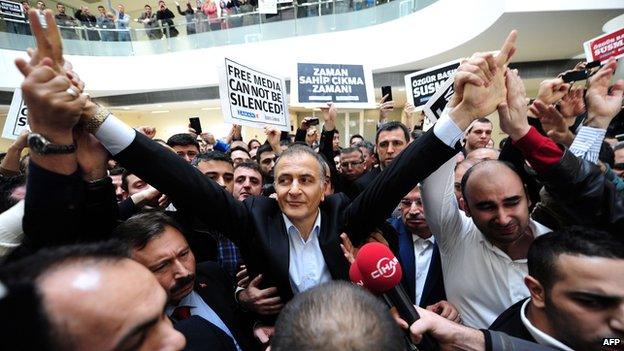
Zaman's editor-in-chief waved to staff while being arrested by counter-terror police
Top European Union officials have sharply criticised a mass arrest of media representatives in Turkey.
Foreign affairs chief Federica Mogherini and the commissioner heading EU enlargement talks said the arrests went "against European values".
At least 24 people were arrested in police raids on a leading newspaper and TV station said to have close links with a US-based cleric.
Those detained are accused of trying to seize control of the state.
The Zaman newspaper and Samanyolu TV channel are described as close to Islamic cleric Fethullah Gulen, the spiritual leader of the Hizmet movement.
A former ally of Turkish President Recep Tayyip Erdogan, Mr Gulen - who lives in self-imposed exile - is accused of running a "parallel state" within Turkey.
'Incompatible' with freedom
In a statement, Ms Mogherini and EU Enlargement Commissioner Johannes Hahn said any move towards EU membership depended on "full respect for the rule of law and fundamental rights".
The raids and arrests "are incompatible with the freedom of media, which is a core principle of democracy," the pair said in a statement.
"We expect that the principle of presumption of innocence will prevail and recall the inalienable right for an independent and transparent investigation."
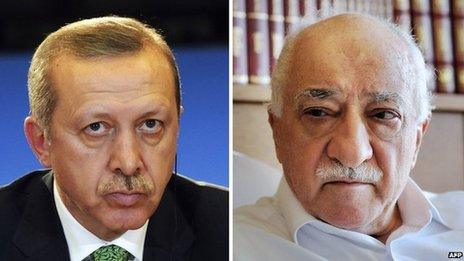
Recep Tayyip Erdogan (left) and Fethullah Gulen were once close allies
The raids come days after Mr Erdogan pledged a fresh campaign against Mr Gulen's supporters.
Journalists, producers, scriptwriters and an eastern Turkey police chief were all arrested, among them the editor-in-chief of Zaman newspaper and the chairman of Samanyolu TV.
Staff at Zaman reported on the incident, external as police mounted a Sunday morning raid on their offices.
Staff and supporters held placards and chanted "free press cannot be silenced" as police raided the building.
Editor-in-chief Ekrem Dumanli smiled and studied police documents before being led through the newspaper's headquarters to applause from staff crowded onto balconies.
"Let those who have committed a crime be scared. We are not scared," Mr Dumanli said as he was led into a waiting police car, according to Reuters.

Analysis by Mark Lowen, BBC News, Istanbul
The timing of these arrests isn't coincidental. It's almost a year to the day since the biggest corruption scandal in Turkey's modern history exploded. Recep Tayyip Erdogan, then prime minister, now president, was targeted, along with his inner circle. Four ministers were forced to resign. It was widely believed the government wouldn't survive.
Extraordinarily, Mr Erdogan managed to turn it around, declaring war on what he called a "parallel state": followers of his one-time ally Fetullah Gulen who he said were plotting a coup. He fired thousands of police officers and prosecutors. This is stage two: arresting the critics.
Turkey already ranks 154th of 180 in the press freedom index compiled by Reporters without Borders. Human rights organisations raise concerns that freedom of expression is under attack in a country seeking EU membership.
But the Turkish government says it's a conspiracy against a country that won't toe the West's line. It talks of the "enemy within" which must be eradicated. Today's move will fuel international concerns of an eroding democracy here.

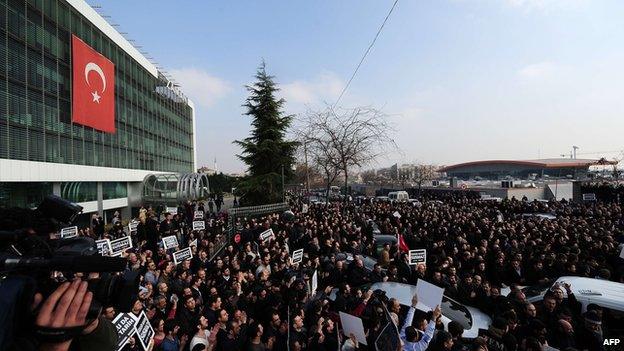
A huge crowd outside Zaman's offices initially forced police to leave without detaining any staff.
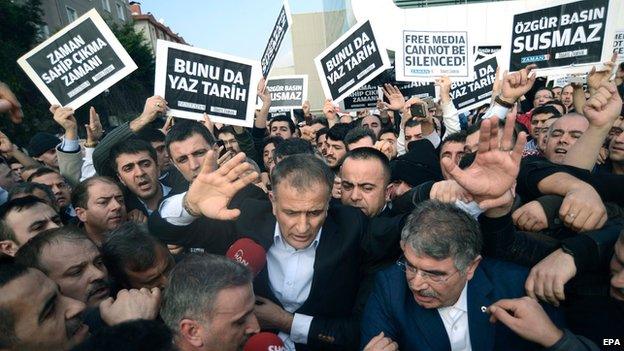
There were chaotic scenes as Zaman's editor-in-chief was led away.
'Disgrace'
The chairman of Samanyolu TV, which also has links to Mr Gulen, was detained in a separate raid in Istanbul.
Hidayet Karaca told reporters the operation was "a disgrace for Turkey" before his arrest.
"Sadly in 21st Century Turkey this is the treatment they dish out to a media group with tens of television and radio stations, internet media and magazines," the English edition of Zaman quoted him as saying, external.
Kemal Kilicdaroglu, the leader of Turkey's main opposition party, called the raids "a coup".
Staff at Zaman had been expecting the raid after details of the swoop were leaked by a Twitter user known as Fuat Avni, who has previously leaked advance details of police operations.

Hizmet movement
Hizmet ("Service") is the Turkish name for what is commonly known as the Gulen movement
The movement is inspired by the teachings of Islamic preacher Fethullah Gulen, who lives in exile in the US
Mr Gulen is a mainstream Sunni Hanafi Muslim scholar, influenced by Anatolian Sufism
There is no formal structure but Hizmet followers are numbered in the millions, spread across more than 150 countries
First expanded into Central Asia after the Soviet Union collapsed in 1991.
- Published27 January 2014
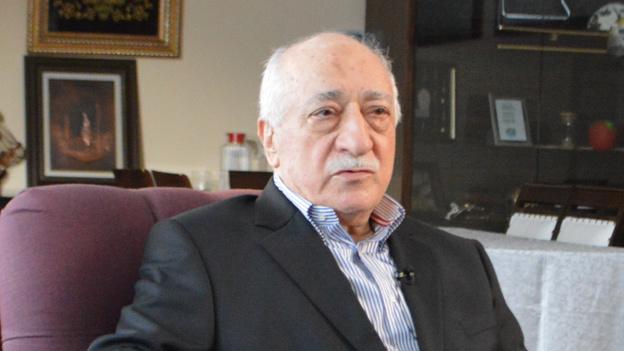
- Published7 January 2014
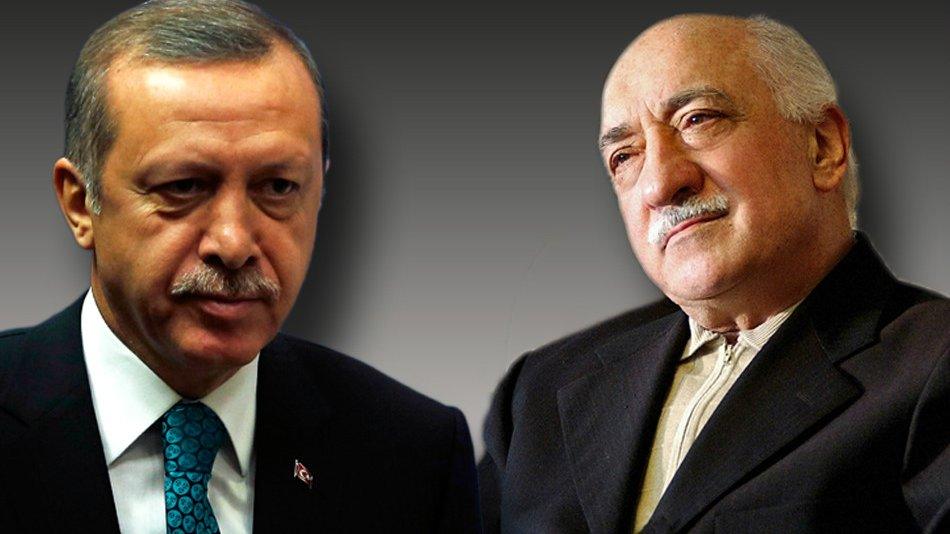
- Published18 December 2013
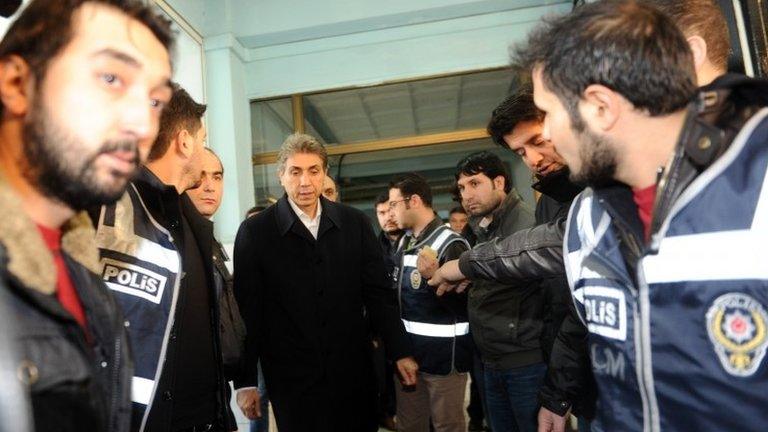
- Published18 December 2013
